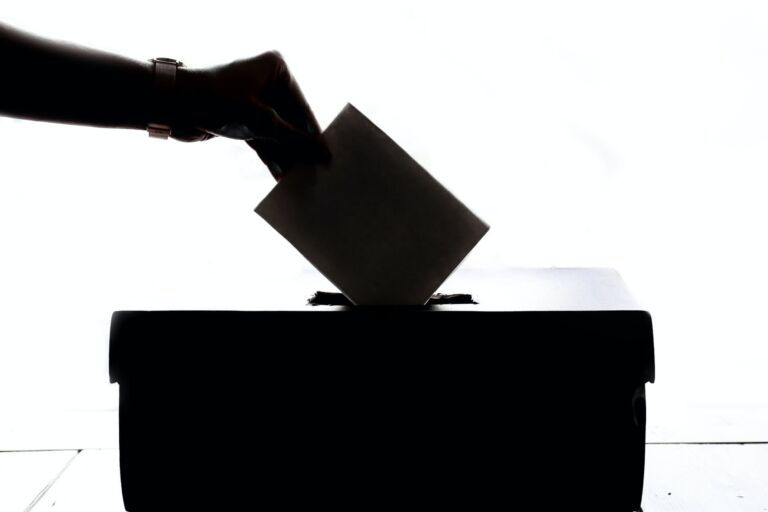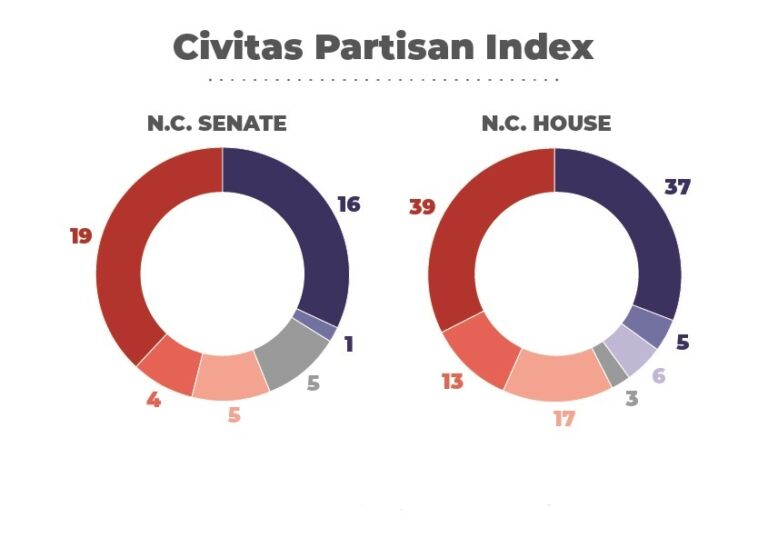The recent injection of campaign finance law changes into the HB237 conference report has garnered massive attention from both the media and the public. Many of them are unfamiliar with the nuances of the states’ laws governing donations from 527s (your typical political party committee/ type of political action committee) or the various types of PACs (FEC-filing political action committees).
Democrats and Gov. Roy Cooper have pushed back against these changes, saying they not only create a loophole for “secret, unlimited campaign money” but also that it would keep voters in the dark about these donations.
I’ve previously discussed the impacts of the bill, and that there are plenty of ways billionaires currently may influence elections and donate unlimited funds through state political parties. Gov. Cooper was a beneficiary of such funds to the sum of $12.7 million just from the Democratic Leadership Committee in 2020. The simplest explanation is that the bill would effectively revert to a 2016 interpretation of the law that allowed Federal super PACs to donate directly to candidates and party committees and expand it to also include 527 committees.
While Democrats have bemoaned the changes, claiming that they would reduce voter transparency, have they been benefiting from the current system?
Double standards on 527 Committees?
The State Democratic Party’s campaign finance reports with the North Carolina State Board of Elections (NCSBE) for both 2020 and 2022 indicate that they received substantial funding from a 527 committee. The report indicates that former US Attorney General Eric Holder’s “National Democratic Redistricting Committee,” an organization based out of Washington D.C., gave $100,000 in 2020 and $35,000 in the 2022 election.
At the same time, in 2020, the “National Democratic Redistricting PAC”, a limited contribution PAC affiliated with the National Democratic Redistricting Committee, also donated over $629,000. This made the PAC the 5th largest contributor to the North Carolina Democratic Party in the 2020 election.
These facts would lead one to believe that this is a blatant violation of the state’s current elections laws, as 527 committees were not allowed to donate to political parties.
When the NCSBE reviewed these transactions between the committees in question, they found no issues with the source of money that the State Democratic party had reported. Does this indicate that the NCSBE was giving the democratic party some kind of special treatment, allowing them to take money from an organization that Republicans could not have? The short answer is no. While both the name and address match the 527 committee, these transactions were not recorded on the National Democratic Redistricting Committee’s IRS filings. Instead, these donations appear to align with the PAC’s. Both the amount and dates of the transactions appear to align with one another. These committees are but two of four different names used by the state Democratic Party used to indicate the more than $1.5 million the National Democratic Redistricting PAC donated to the state party in just 2020.


That information should not have been separated out among four different names in the report. In campaign finance reporting, you are supposed to make sure an organization’s information is accurate to their address, and you use that information to accurately represent their funding over an election cycle. The NCSBE explained that these transactions had been reviewed under their standard audit procedures and that it was conducted by a newer staff member of their audit team at the time. The staffer had approved the transactions in the report due to the money adding up correctly when factoring in all naming conventions used to represent the “National Democratic Redistricting PAC”.
While this is not a salacious scandal of hundreds of thousands of dollars missing in campaign finances nor a situation where one party has a sort of sweetheart deal with the NCSBE. The situation does highlight several issues when it comes to public transparency:
- The NCSBE’s flexibility in reporting and lack of immediate ability to verify donation sources, means organizations that should not be donating could only be caught well after the election is over.
- A lack of standardization in identifying organizations that donate.
- Our current audit system lacks automation. Increasing the time required to conduct audits and the risk of human error.
Transparency issues within our current reporting system
The NCSBE currently allows a great deal of flexibility in committee reports regarding the names of organizations they both give to and receive money from. They allow various acronyms or abbreviations of organizations, so long as they are close enough for them to determine what organization it is based on. This flexibility stems from organizations potentially changing their names over the years and prevents organizations from being punished in their reporting due to the name changes of other entities that they are not made aware of.
The problem with this is that with flexibility of names, addresses, and transaction dates, it becomes difficult for the public to know what money goes into various committees. This flexibility is what allowed an organization whose name and address should have indicated they were not allowed to contribute directly to a state party. The National Democratic Redistricting PAC’s name and address were both inaccurate, yet this was only discovered during the standard audit timeline, which was conducted in the middle of 2021.
When I spoke to the board of elections on June 18th, 2024, they had not yet conducted an audit of the 2022 transactions between the State Democratic Party and the National Democratic Redistricting PAC. They had not seen that there was a $10,000 discrepancy between the two committees’ reports until I expressed my concerns to them.


Because they lack a reliable unique identifier for a committee, the only way to conduct these audits is manually. This is not only a time-consuming process for a staff of five people but also leads to potential human error. North Carolina law requires that the board of elections verify each report four months after any election. However, this is rarely achieved.
Every committee that files with the NCSBE, whether it is a state-level organization or federal, has a unique identifier related to its committee. While every committee has a code, it does not require that a treasurer identifies the organization by its code. According to the NCSBE, only about 50% of all transactions between committees filed with the NCSBE include the code of the organizations in their reports.
The problem is worsened by the fact that about 25% of all committees provide a digital copy of their reports. Committees that spend over $5,000 must submit digital copies of their reports. This includes both independent expenditure-only committees (super PACs) and PACs. Yet organizations that spend millions of dollars in elections have been allowed to get away with only submitting image files. These image files do show up when utilizing search tools on the NCSBE website. They can only be found if you directly look through committee reports. Fortunately, the NCSBE indicated they are looking to crack down on the issue of committees only submitting image files for the 2024 election cycle.
This issue could worsen with changes in HB237’s reporting process for Federal PACs and 527 committees. Because the IRS system and FEC systems are not compatible with the NCSBE reporting process, staff indicated they are still brainstorming how they will showcase these reports on their website. Their current plan is to simply require PDFs to be submitted and recommend that members of the public looking for information utilize the IRS or FEC website to better track the finances of these organizations.
Campaign finances need transparency improvements
Cooper and many critics of HB237 are quick to state that the changes in the bill will reduce transparency and allow high-level donors to hide their donations. These statements ignore the current reality that billionaires already have ways to put unlimited money into elections through political parties and other issues with transparency in our current system. The current system has many flaws that hamper transparency and prevent the public from easily tracking election finances.
While the bill includes some flaws that should be addressed by the legislature, including a loophole for federal PACs to donate during sessions and changing how IRS and FEC filers submit reports to the NCSBE, the bill does not go as far as some critics claim to reduce transparency.
Federal super PACs and 527 committees are all required to disclose their donors. The claim that they don’t by many in the media is outright false. Open Secrets best explains this in their explainer on dark money.
Despite the sometimes inaccurate portrayal of them in the media, super PACs must identify all of their donors to the Federal Election Commission (FEC), and thereby to the public. They must do so on a monthly or semiannual basis in non-federal election years and monthly in the year of an election. In that sense, super PACs are quite transparent, except when the donor is a shell corporation or a nonprofit that doesn’t disclose its donors.
Open Secrets
Overall, many issues need to be addressed regarding transparency in our election system. These issues are not helped by false narratives and half-truths. Let’s stick to the facts and address the issues.


